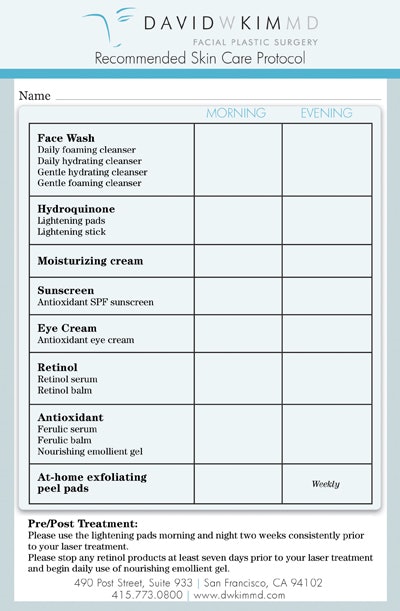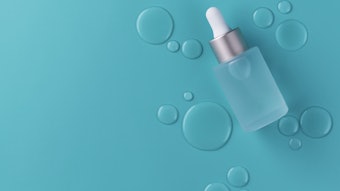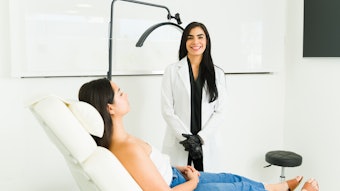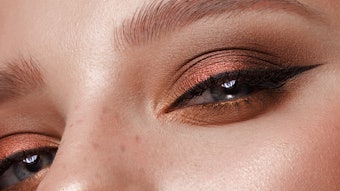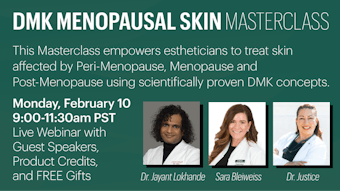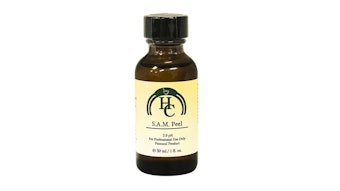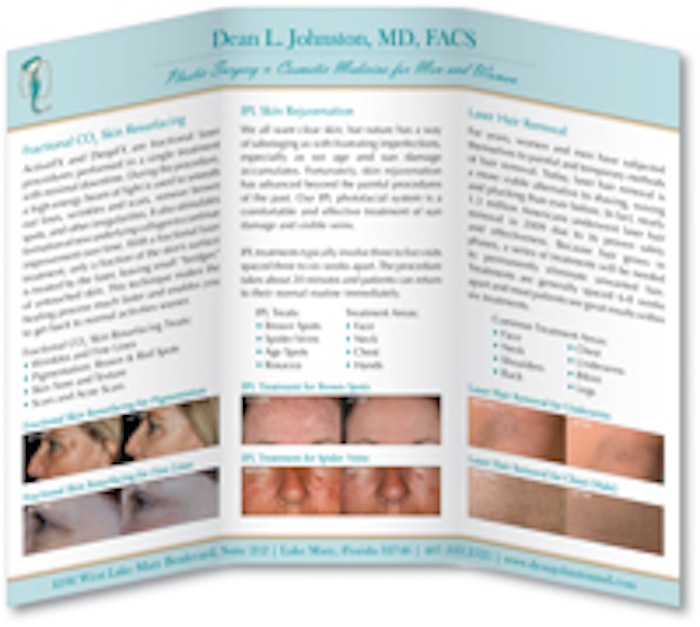
Editor’s note: To address the needs of the growing medical esthetics market, Skin Inc. magazine is pleased to introduce Medical Spa Point of View, a new column for 2011 that will offer three viewpoints on medical esthetics: the physician’s, the esthetician’s and the marketing expert's point of view.
Often, recommending the purchase of home care products can seem daunting to a skin care professional; however, without these recommendations, clients and patients won’t enjoy the best possible results from in-spa treatments.
In this column, you will get the point of view of a physician and esthetician, as well as a marketing expert's perspective on this subject, providing truthful, useful information as to why home care is not an option; it’s a necessity.
Physician’s point of view: Steven H. Dayan MD, FACS
One of the most important jobs of estheticians in a medical practice or medical spa is to recommend products. Physicians need to know that what their patients are using is safe and will provide them with optimal results. Knowing that patients’ skin is in good condition before a deep laser treatment or surgery eases the physician’s mind and helps ensure they will heal in a timely manner with a decreased chance of side effects.
Patients should be pre-treated with home care products no matter what condition is being addressed; it is a joint effort between the patient and provider. Acne patients must be educated on the importance of properly cleansing their skin, as well as using products to fight bacteria and eliminate dead skin cell buildup. Patients trying to treat pigmentation will see favorable results if they are using pigment-lighteners before and after in-office treatments. Sunscreens are a must when treating all skin conditions, but especially in the case of any pigmentation concerns. Topical antioxidants are recommended to most patients because they are beneficial for all skin types; they help increase the skin’s strength by fighting off free radicals from environmental factors.
When patients are seeing an esthetician in a medical practice or medical spa, the physician feels more comfortable providing them with more invasive treatments. If it is unknown what is being used on patients’ skin when they leave—especially with treatments such as fractionated CO2 laser or surgery—there could be adverse effects. There are products that have too many chemicals in them that can irritate sensitive, healing skin or even hinder the results. If patients who are undergoing surgery are not using a good home care regimen, they may not heal quickly. Immediately following surgery, the skin is in a vulnerable state. Incision areas may become scarred if not properly protected from sun exposure. Again, topical antioxidants and sunscreens are the first choice of recommendation, along with gentle cleansers for these treatments.
Esthetician’s point of view: Terri A. Wojak
As skin care specialists, there is only so much you can do to the skin if clients are not doing their part at home. If you think about it, clients treat—or should treat—their skin 59 times to your one service if they come in once a month. When addressing skin conditions, only a percentage of results are experienced in the treatment room; the rest consists of what clients are doing at home. Improper product use can affect, cause or exacerbate many skin conditions. The two most common conditions that clients look to treat are acne and hyperpigmentation and, with both of these conditions, using the right products is essential to obtain results.
In all cases of acneic skin, product use is of the utmost importance. No matter how often clients come to see you, if they are not compliant with product use at home, it will be a vicious cycle for both provider and client because the skin may not be in a healthy state. There are many products on the market that claim to be good for acneic skin, but are often too drying or even irritating to the skin, causing more comedones and increased inflammation. One of the main causes of grades I and II acne, which are the milder forms of acne consisting of open and closed comedones, is simply from using the wrong products. In the instance of inflamed forms of acne, it is important that clients keep their skin hydrated at home and use products that reduce inflammation, as well as kill bacteria.
When pigmentation is a concern, skin-lighteners and sunscreens are essential. A good broad-spectrum sunscreen is the most important product clients should use at home when treating pigment concerns. If sunscreens are not used on a regular basis, then performing treatments in-office is pointless. It is hard enough to get pigment concerns under control, and it can become much worse with sun exposure. Chemical peels and laser treatments are most often used in-office to lighten the skin, but the use of skin-lightening products containing tyrosinase inhibitors, such as hydroquinone, kojic acid, bearberry and licorice root, can make a world of difference. With the combination of in-office treatments and client dedication to using the right products, results can be extraordinary.
If clients are not willing to use products at home that are beneficial to their skin, you must explain to them that there is nothing that can be done in-office to treat to the fullest potential. There are even times when you may have to turn clients away because there are treatments that can cause the skin to become worse if they are not going to follow up with the proper skin care regimen. If money is an issue, offer to skip an in-office treatment so they can afford the retail products and get better results in the long run. If clients are still skeptical about purchasing products, provide them with samples, although samples usually don’t contain enough product to show the difference that can be made in the skin’s condition. Educate your clients in every way you can to encourage them to see the benefits of a good home care regimen.
Marketing point of view: Tracy L. Drumm
Strong marketing or client education follows the same laws as skin care: Regular maintenance is essential to producing results. Fortunately, there are marketing tools and strategies that can be put in place to assist in educating clients about purchases. Product recommendation forms or “prescription pads” are essential. The esthetician can fill out a recommendation on the sheet, giving the clients a take-away of the products recommended with a detailed description of how to use them. It is also beneficial because clients may forget how to use something after they leave the office.
Before-and-after pictures are also essential for any medical practice or medical spa. It is an aesthetic world out there where visuals are key. Ask the skin care company that you are working with to provide pictures, or you can start a library of your own. Display the photos throughout the practice wherever potential clients will be waiting to showcase the type of results past clients have enjoyed. These can be an effective way to introduce new services.
Brochures should be available in all of the treatment rooms, as well as at the reception desk. For any take-away, add a line encouraging clients to share the brochure with friends when they are done reading it. This is a subtle way to encourage clients to refer their friends and family. Be sure to add links to your website and, ideally, have before-and-after photos displayed there, as well.
Appeal to your clients’ inner child, and put out samples and testers for them to touch, feel and smell. In addition to engaging clients’ senses, you are getting them excited about the products you have. Placing testers in the reception areas, treatment rooms and checkout areas is a strong way to ensure clients have time to play with the products.
Just as you follow a daily skin care regimen and teach your clients to do so, adopt a daily marketing routine that involves making sure you are providing your current and prospective clients with a chance to learn about your products and services. By using strong visuals, take-away forms and interactive learning, you will stay current in clients’ minds and enjoy a blemish-free schedule.
Steven Dayan, MD, FACS, is a recognized expert and leader in the field of facial plastic surgery, and is one of only 2,700 members of the American Academy of Facial Plastic and Reconstructive Surgery. He also has a passion for education, which led him to open True University Esthetics in Chicago, a medical esthetic training center that teaches estheticians how to appropriately work with physicians. Dayan is a 2010–2011 member of the Skin Inc. magazine editorial advisory board.
A passion for marketing and a love of esthetic medicine helps drive Tracy L. Drumm to manage the day-to-day operations of IF Marketing, a firm in downtown Chicago specializing in esthetic medicine. Drumm recently co-authored Keys to Success: Marketing & Practice Management (College of Cosmetic Medicine Press, 2007) and Thrive: Pearls to Prosper in Any Economy (College of Cosmetic Medicine Press, 2009).
Terri A. Wojak is a licensed esthetician with more than 14 years of experience. She has knowledge in all aspects of the skin care industry, including education, sales, medical esthetics, management and ownership, and she is the director, as well as an educator, at True University Esthetics in Chicago.
